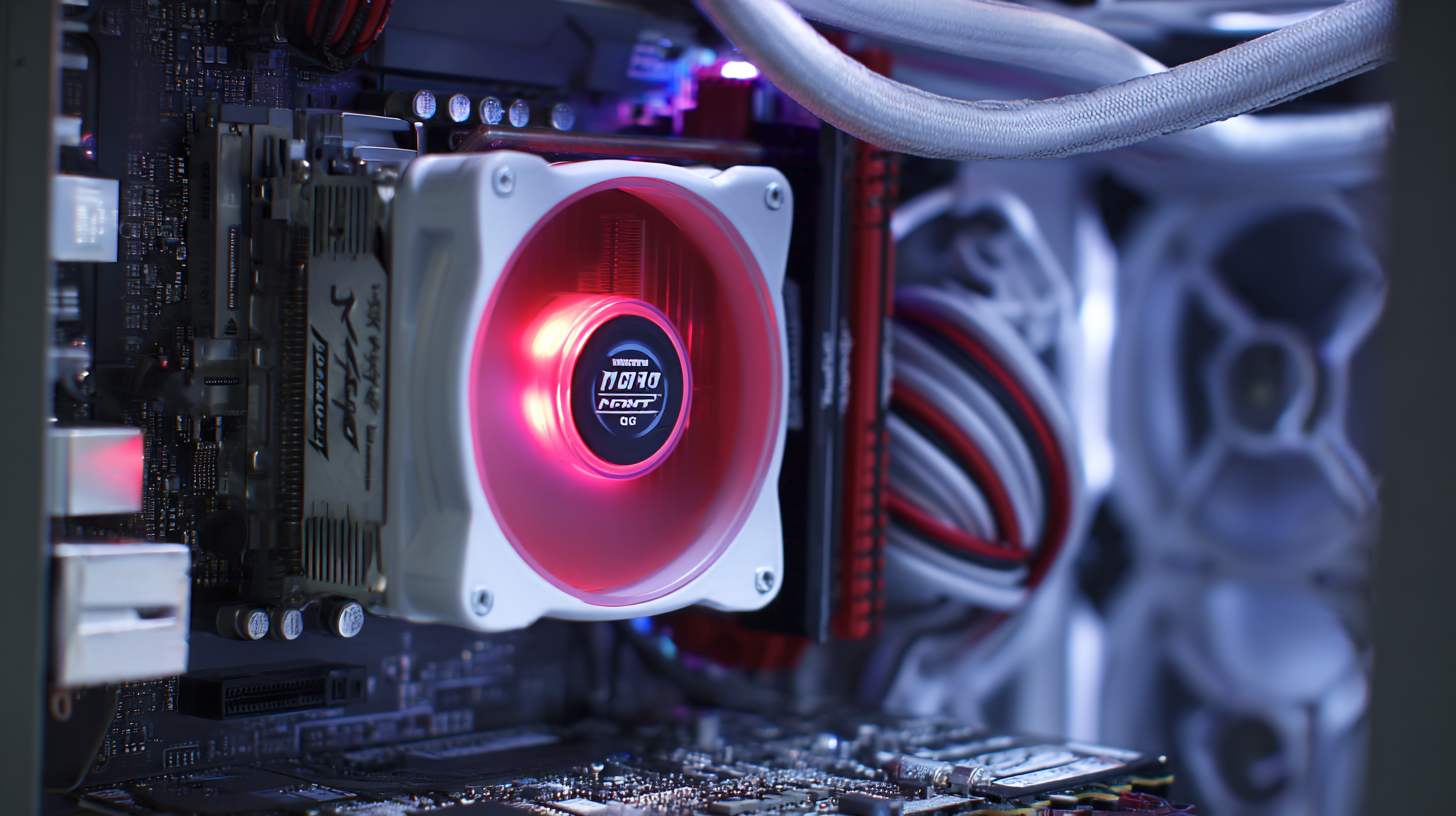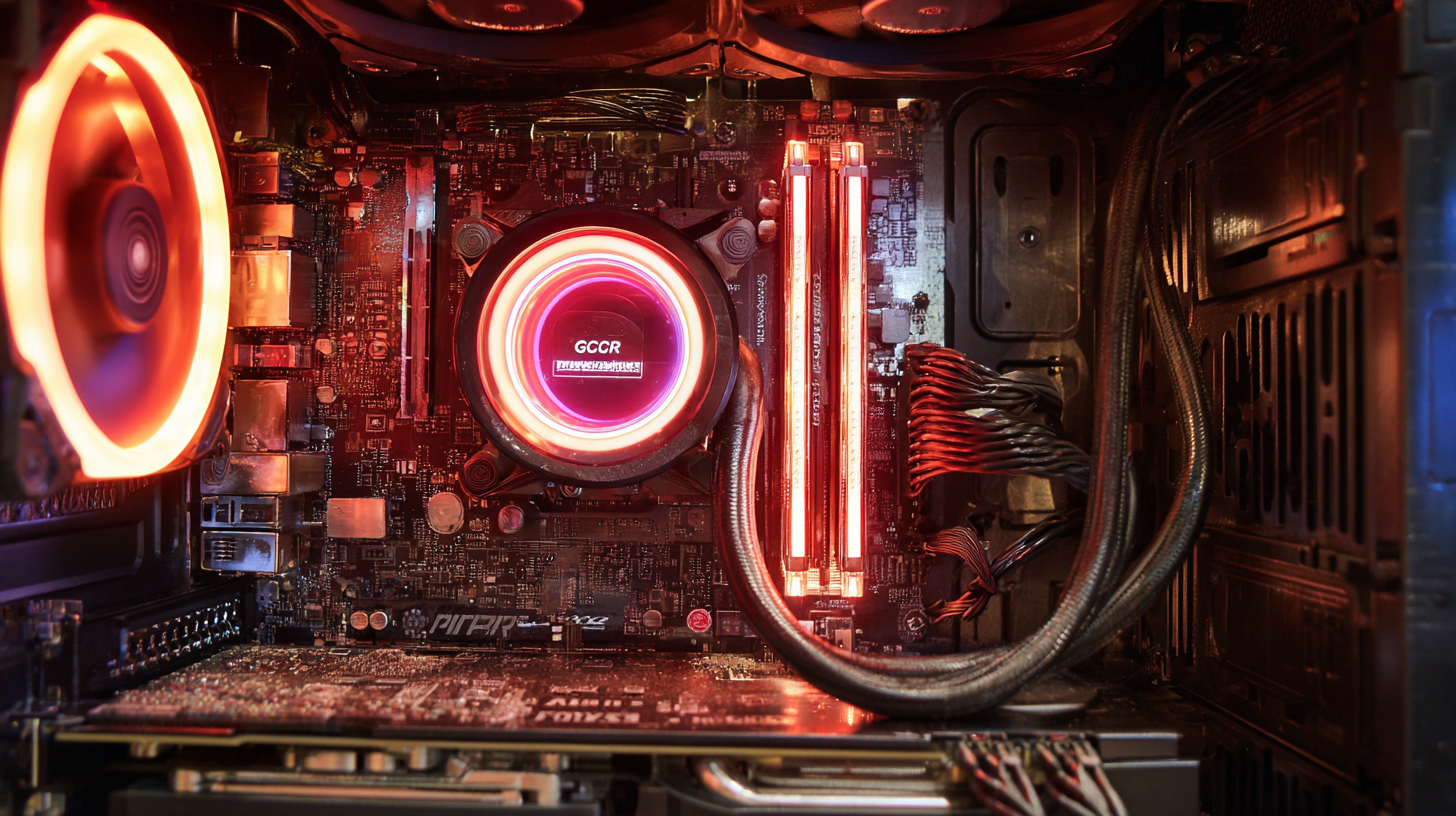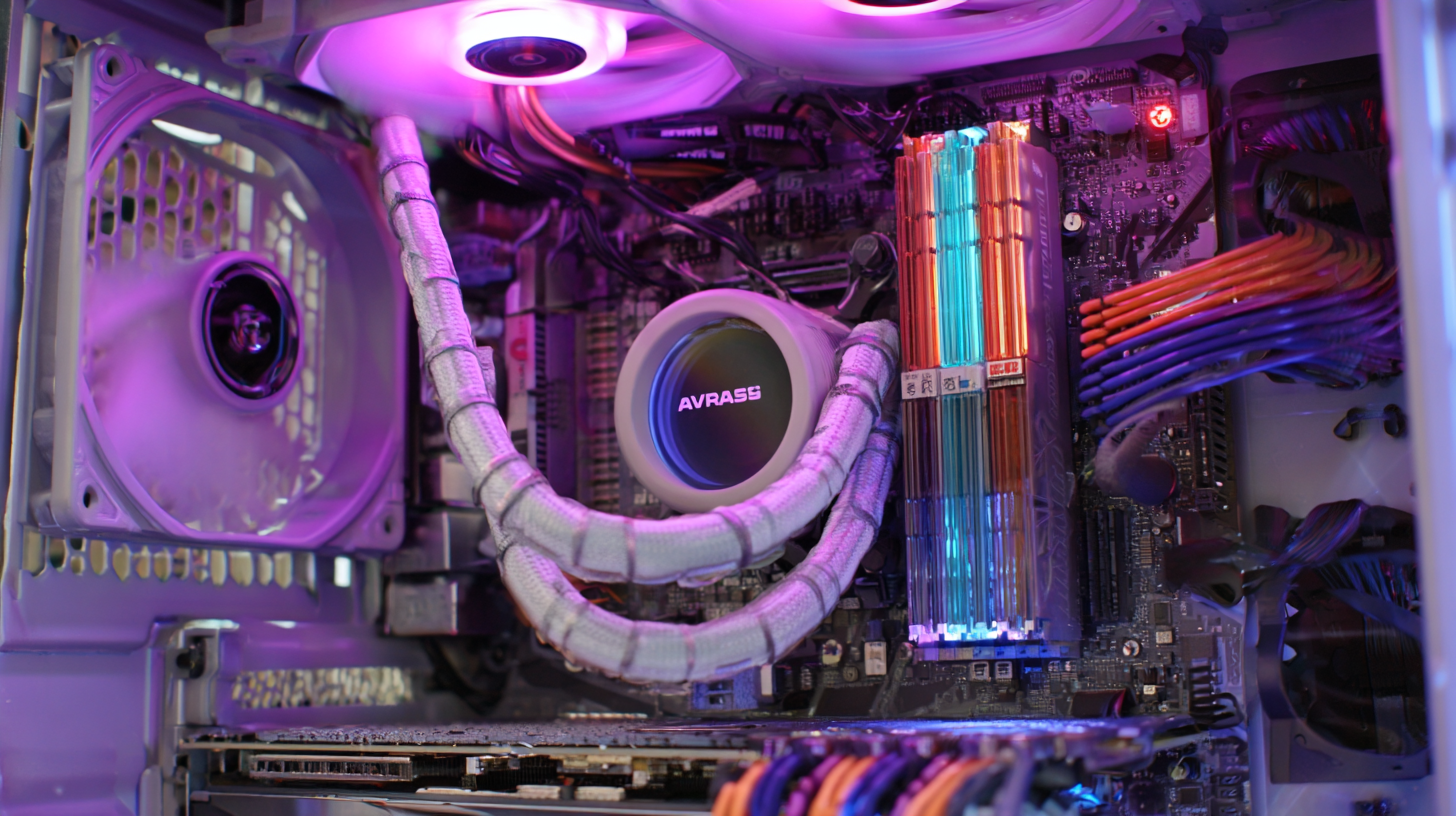Leave Your Message
- Phone
- E-mail
- Whatsapp


As the demand for high-performance computing continues to surge, efficiently managing thermal output has become paramount for both gamers and professionals alike. A key component in achieving optimal performance is the CPU cooler, which plays a crucial role in maintaining ideal operating temperatures. According to a recent market report from Fortune Business Insights, the global CPU cooler market is expected to reach $2.5 billion by 2028, growing at a compound annual growth rate (CAGR) of over 7%. This growth underscores the rising awareness of the importance of effective cooling solutions. With advancements in technology, various types of CPU coolers—air coolers, liquid coolers, and all-in-one solutions—have emerged, each offering unique benefits tailored to specific user needs. In this blog, we delve into the best CPU cooler types available, exploring how they contribute to optimal performance and longevity of computer systems, while also considering the trends and innovations shaping the future of thermal management in 2025 and beyond.

The demand for high-performance CPUs has surged in recent years, driving the need for efficient cooling solutions. In modern computing environments, where processors can reach temperatures exceeding 90 degrees Celsius under load, effective cooling is not just beneficial but essential. According to a report by ResearchAndMarkets, the global CPU cooling market is projected to grow significantly, reflecting the industry's recognition of the importance of keeping CPUs within optimal thermal parameters.

Efficient cooling solutions directly impact CPU performance and longevity. A study from TechInsights indicates that CPUs cooled at optimal temperatures can operate at 10-20% higher clock speeds compared to those with inadequate cooling. This performance boost is especially crucial for gamers and professionals in data-intensive fields, where every bit of processing power counts. Furthermore, maintaining lower thermal states can extend the lifespan of these components, with some estimates suggesting that cooler CPUs can last up to 50% longer than those subjected to thermal stress.
The evolution of cooling technologies, including air coolers, liquid cooling, and phase change cooling, allows users to choose setups that best fit their performance needs and environment. As the industry continues to innovate, the focus will remain on balancing cooling efficiency with noise levels and cost, ensuring that users can maximize the potential of their CPUs without compromising on comfort or budget.
 When it comes to ensuring your CPU operates at optimal temperatures, selecting the right cooler is crucial.
The most common types of CPU coolers include air coolers and
liquid coolers, each with its unique advantages and drawbacks.
Air coolers, often favored for their simplicity and reliability, rely on large heatsinks and powerful fans
for heat dissipation. They are typically easier to install and maintain, making them a popular choice for users
who prefer a hassle-free experience. Not to mention, many air coolers can provide excellent cooling
performance without the risk of leakage that comes with liquid cooling systems.
When it comes to ensuring your CPU operates at optimal temperatures, selecting the right cooler is crucial.
The most common types of CPU coolers include air coolers and
liquid coolers, each with its unique advantages and drawbacks.
Air coolers, often favored for their simplicity and reliability, rely on large heatsinks and powerful fans
for heat dissipation. They are typically easier to install and maintain, making them a popular choice for users
who prefer a hassle-free experience. Not to mention, many air coolers can provide excellent cooling
performance without the risk of leakage that comes with liquid cooling systems.
On the other hand, liquid coolers have become increasingly popular due to their
superior thermal performance, especially for high-end CPUs that generate significant heat
under load. Liquid cooling systems utilize a pump, radiator, and water blocks to transfer heat away from the
CPU more efficiently than traditional air coolers. This method often results in quieter
operation and allows for better overclocking potential. However, it's essential to consider the
complexity of installation and the potential for maintenance, such as monitoring the liquid levels or
replacing components over time. Ultimately, choosing the right CPU cooler type depends on
individual needs, system compatibility, and personal preferences.
When selecting the right CPU cooler for your system setup, it’s essential to consider factors such as your CPU model, usage patterns, and case compatibility. According to a recent report from Tom’s Hardware, air coolers dominate the market, accounting for approximately 70% of CPU cooler sales. These coolers are favored for their simplicity, cost-effectiveness, and reliability. For most mainstream builds, a high-quality air cooler, such as those from Noctua or be quiet!, can handle moderate overclocking while maintaining reasonable temperatures and noise levels.
However, for users engaging in more intensive applications like gaming or video editing, liquid coolers may be a better fit. Research from Linus Tech Tips highlights that liquid coolers outperform air coolers at high thermal loads, often yielding CPU temperatures 10-20 degrees Celsius lower under stress. Furthermore, they offer more aesthetic options with customizable RGB features that appeal to gamers and enthusiasts alike. Ultimately, the choice of cooler should align with your system's performance needs and aesthetic goals, ensuring that you achieve optimal thermal management without compromising on style.
| Cooler Type | Cooling Method | Performance Level | Noise Level | Best Use Case |
|---|---|---|---|---|
| Air Cooler | Fan and Heat Sink | Moderate to High | Low to Moderate | Budget Builds, Moderate Gaming |
| Liquid Cooler | Water Cooling | High | Low | High-Performance Gaming, Overclocking |
| All-in-One (AIO) Cooler | Closed Loop Liquid Cooling | High | Very Low | Compact Builds, High Thermal Demand |
| Custom Loop Cooler | Modular Water Cooling | Very High | Variable | Enthusiast Builds, Extreme Overclocking |
As we look ahead to 2025, innovative cooling technologies are evolving at a pace that is transforming industries. The integration of artificial intelligence with cooling methods is not just a trend; it's a necessity driven by the increasing demand for efficiency across sectors such as data centers and home appliances. The recent advancements highlight a shift toward AI Hybrid Cooling technologies, which enable precise temperature control and resource management, catering to diverse environmental needs.
In the realm of data centers, the focus is on sustainable practices to meet the challenges posed by rising energy demands. Immersion cooling techniques are gaining traction, significantly enhancing energy efficiency and reducing waste heat. As climate change and energy costs become pressing global issues, innovative cooling solutions are stepping into the limelight, offering sustainable paths for industrial decarbonization. With projections indicating a substantial growth in the liquid cooling market, the convergence of AI, high-performance computing, and IoT is expected to redefine how cooling systems operate in the near future.
When it comes to choosing the best CPU cooler, understanding the various types available on the market can greatly influence your system's performance. From air coolers to liquid cooling systems, each has its unique advantages that cater to different user needs. Air coolers, which utilize a heatsink and fan, are often more affordable and simpler to install. In contrast, liquid coolers provide superior thermal performance, which is essential for high-performance CPUs, especially for gaming enthusiasts and professionals.
Performance comparison of top CPU coolers reveals that liquid cooling systems are increasingly popular thanks to their efficiency and quiet operation. Recent trends show that liquid cooling solutions are projected to grow significantly in market size, indicating a shift towards high-performance cooling as users demand more from their computing power. As existing hardware continues to evolve, particularly with new CPU releases, investing in the right cooling solution can ensure optimal performance and longevity for your system.
**Tips:** When selecting a cooler, consider your CPU's power requirements and your case's compatibility. Always check the cooler's noise levels if a quiet operation is essential for you. Lastly, keep an eye on the upcoming models that might offer improved efficiency and cooling capabilities.
